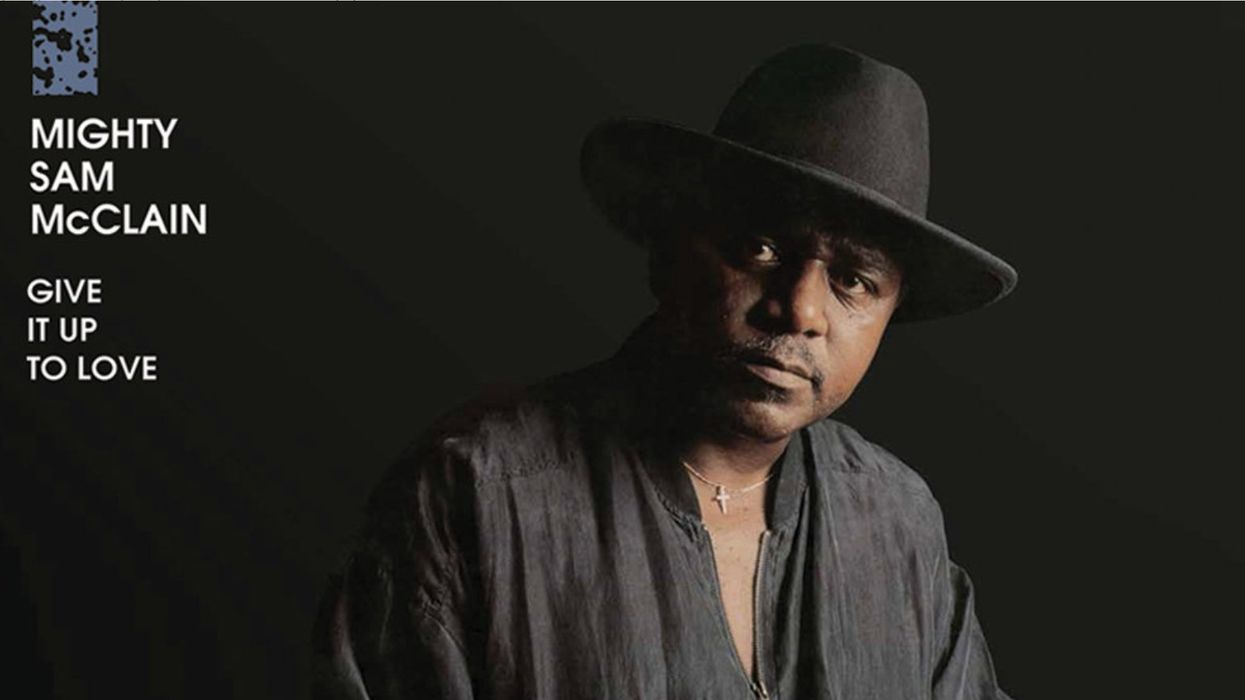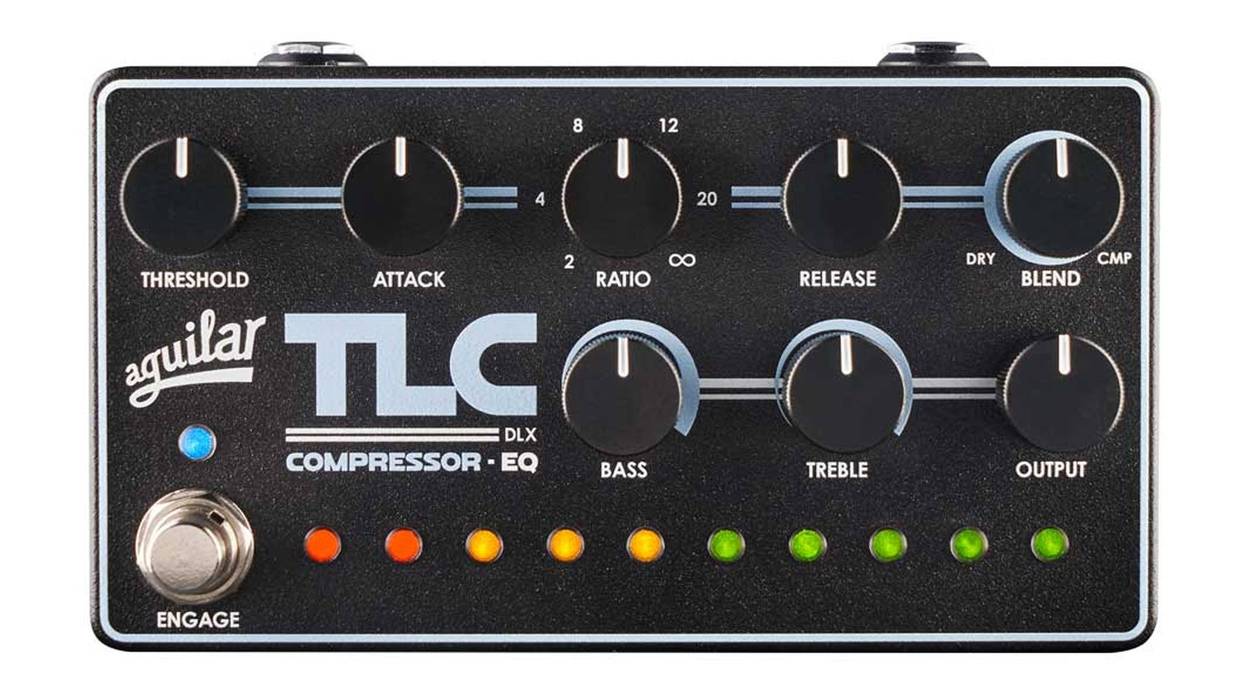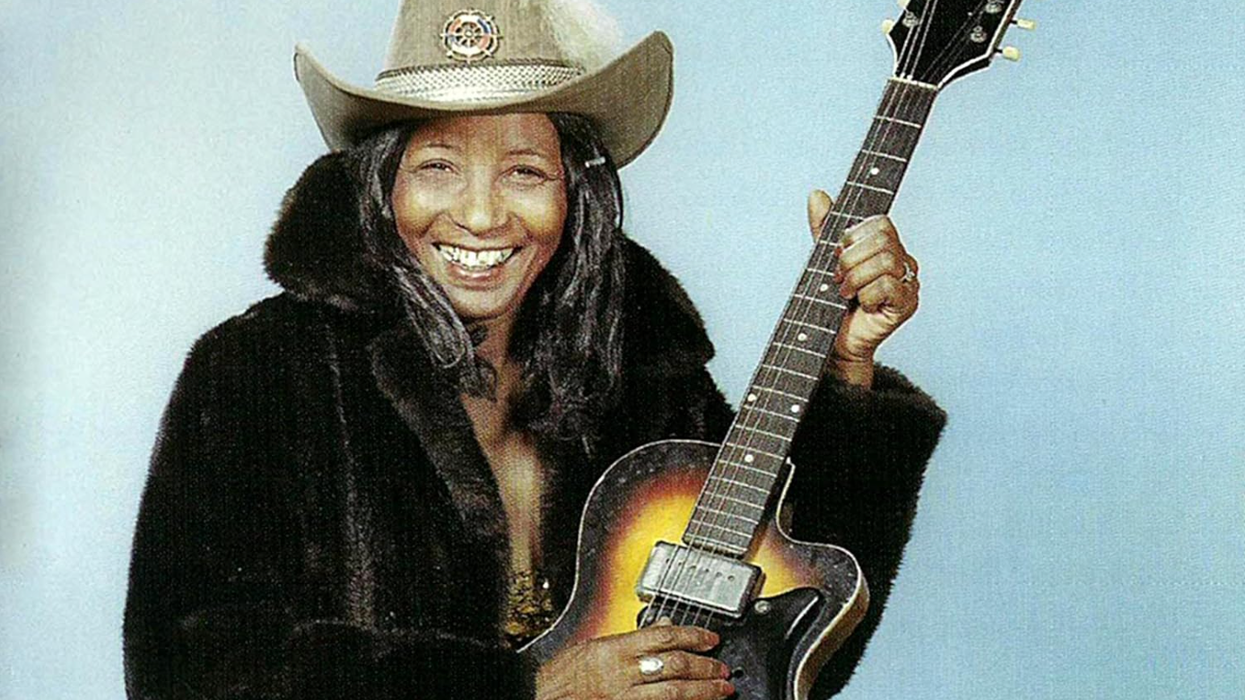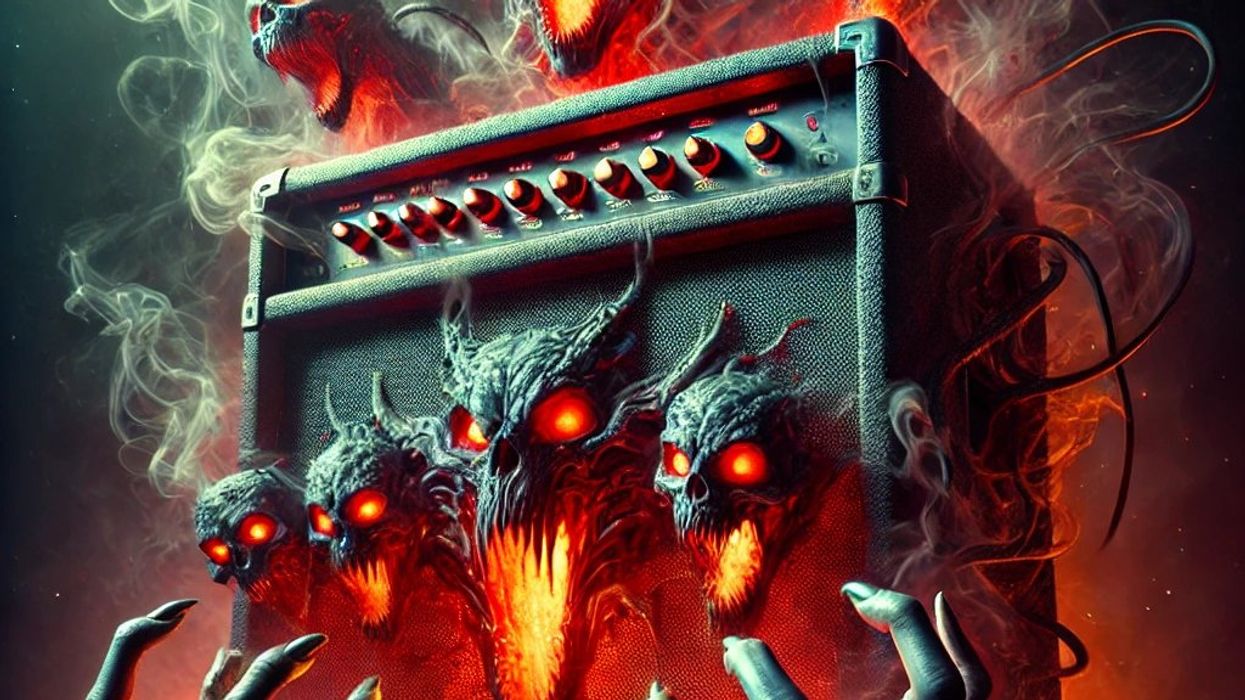We all know that, regardless of the genre we associate them with, our musical heroes typically have a pretty wide array of influences that affected their growth as original songwriters. But you might be surprised just how different their most treasured music often is from the genre(s) they play. This has been a fascinating point of interest for me over years of interviewing musicians, but over the last several months it's struck me even more as I've interviewed all sorts of players for our Big 5 video series. One of the five "big" questions is about their desert-island album, and whether I'm talking to someone like Dream Theater's John Petrucci or Melissa Etheridge or Andy McKee or Cradle of Filth's Richard Shaw, I'm often kind of blown away by what they choose.
When it comes to my feeble attempts to "do my own thing" as a writer of songs and riffs, this whole area has increasingly been … I don't know if I necessarily want to say troubling me, but yeah, I guess it kind of has. The question it's boiling down to: How much of it should I let through? Or, should I selectively censor instincts that stem from a genre that seems "incongruous" with my own? (Whatever that is.) When writing song parts, is it okay to let any and all types of ideas through?
I think part of what's spurred these somewhat overwrought questions is that, although I've been a fan of heavy music my whole life, the last few years I've gotten more and more into extreme metal. Possibly out of boredom … possibly out of some subconscious, raging-against-going-gently-into-that-good-night middle-aged primal fear bullshit … but more than likely just because it flippin' rules.
Would it be lame to use black-metal-esque tremolo picking in tunes primarily played on baritone Jazzmasters or downtuned Telecasters played through a Vibrolux and a bass amp?
But, for me, these questions aren't confined to just, say, would it be lame to use black-metal-esque tremolo picking in tunes primarily played on baritone Jazzmasters or downtuned Telecasters played through a Vibrolux and a bass amp? Like you, my listening tastes run a huge gamut—one that grows with every passing year. Like, I've long been super into rockabilly, but only recently did I end up with a really nice Gretsch. When I plug it in, should I use it for the shit it seems destined for? It sounds killer with slapback echo and rollicking '50s-style riffage, but is it hokey to incorporate it that way? Conversely, is it stupid to have a guitar that does that so well, only to use it in a way that kind of ignores the guitar's unique capabilities and just makes it sound kind of interchangeable with my Tele?
I know, I know … on one level this is handwringing garbage. "Dude, just let your music happen. You're totally overthinking it." But am I really? We all want to somehow be at least a little different (again, whatever that means), but it can seem increasingly futile. If by some miracle you stumble on some idea or sonic aesthetic that seems to scratch the surface of uniqueness, you better be real careful how you execute it—because otherwise you risk having it come across as an abominably ill-advised pastiche (at best) or (at worst?) as convoluted and unintentionally comic. On the flip side, just letting things happen—just going with "what feels natural"—can easily become a free pass for being regurgitative. Which is worse?
I don't have many concrete answers. This has been the artist's struggle through the ages—where's the line between trying too hard and being boring af? In the end, I guess all we can do is try to keep pushing ourselves to grow and experiment. Just don't forget to stand back and honestly listen to see whether it sounds contrived or strikes that golden balance between sounding cool and still sounding like the real you. It's like Han said when he, Luke, Chewie, and the gang were trying to get past those Imperial Star Destroyers in Return of the Jedi. "Now don't get jittery … Keep your distance, but don't look like you're trying to keep your distance … I don't know—fly casual."

















